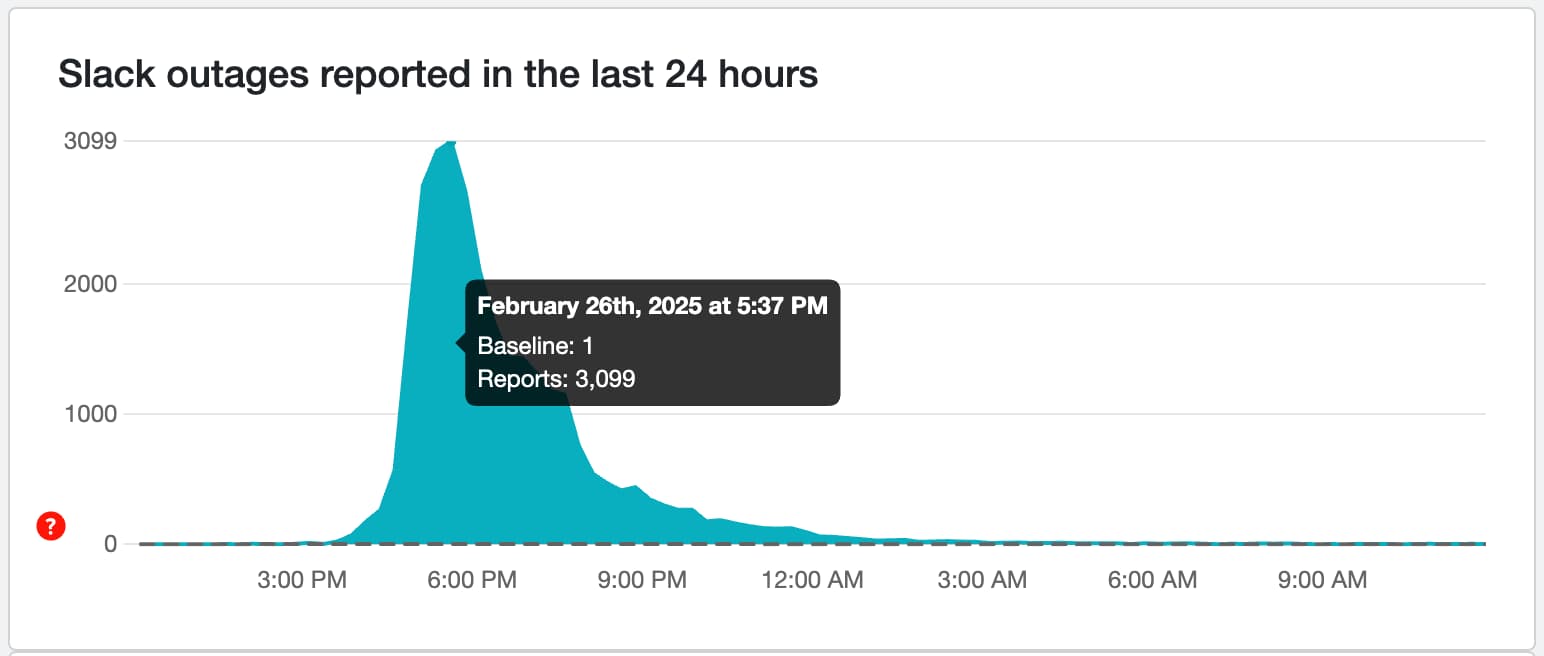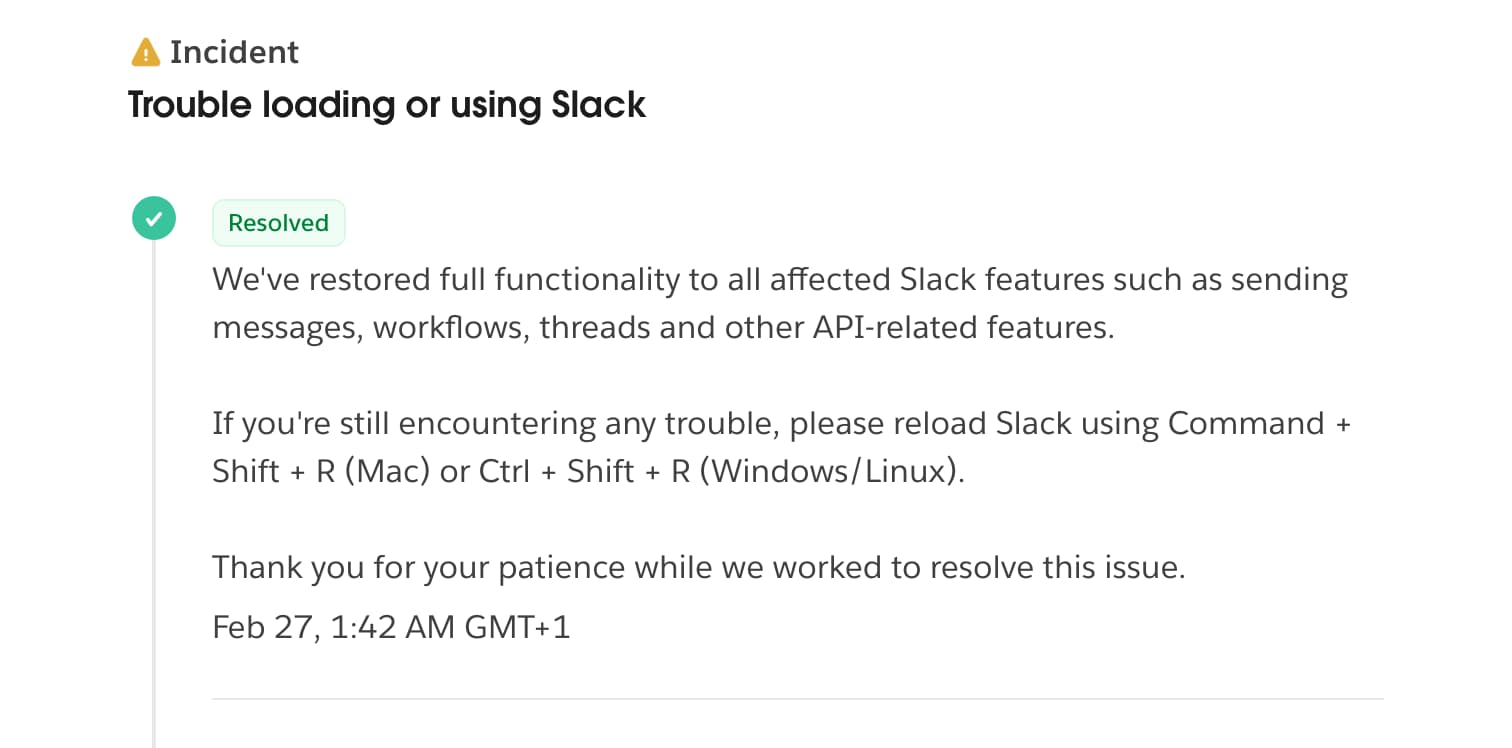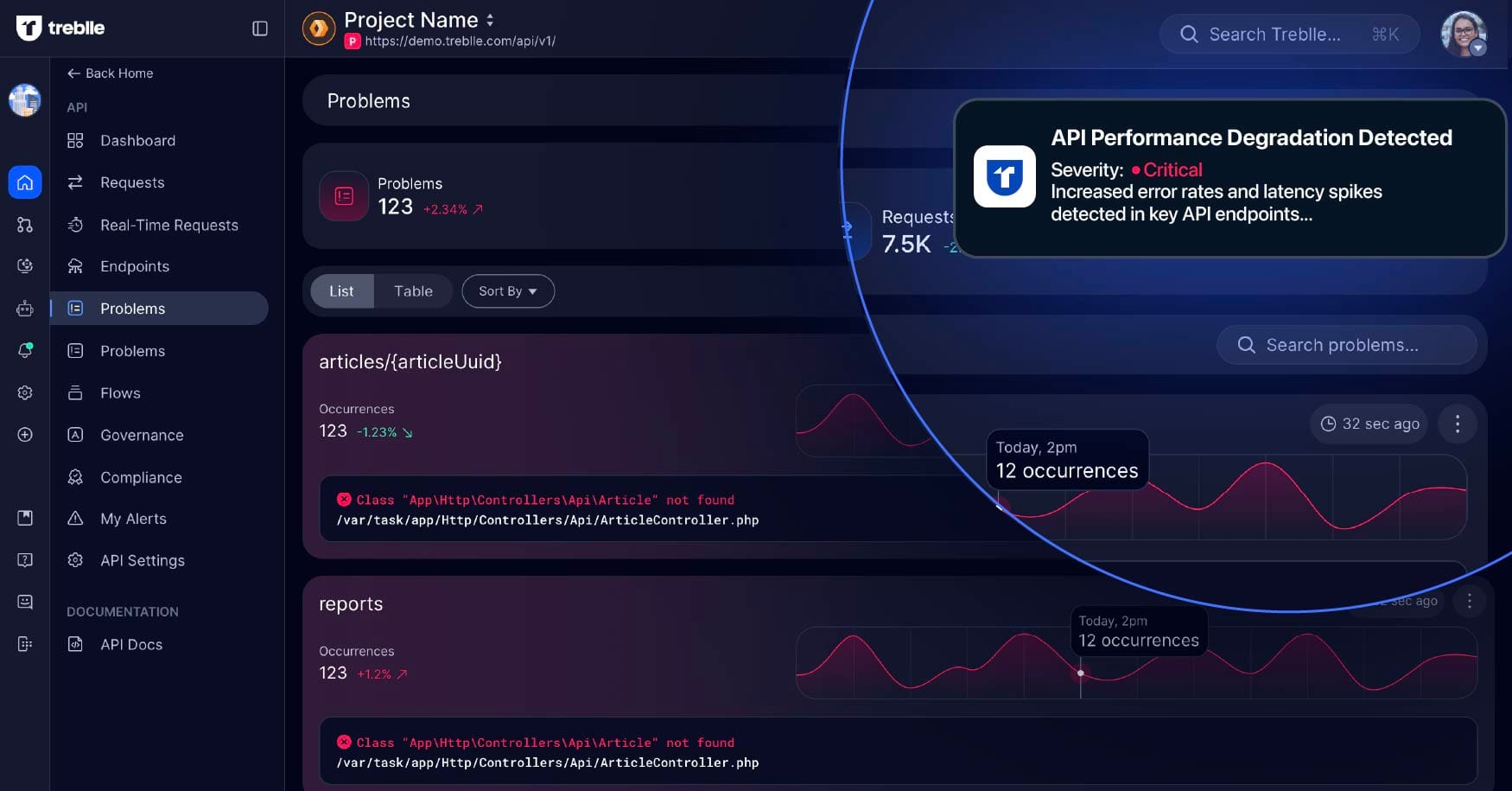API Security | Feb 27, 2025 | 4 min read | By Ivan Mikodanić

Ivan Mikodanić is a software engineer with a strong focus on both frontend and backend development. With a few years of hands-on experience, he has worked on building responsive user interfaces and efficient server-side applications. Ivan brings a thoughtful, full-stack approach to development and is passionate about growing as a developer through real-world problem solving.
• Slack suffered a major outage on February 26, 2025, disrupting communication for thousands of users.
• The root cause was traced to failures in database shards, which led to API breakdowns.
• The outage lasted approximately 10 hours, impacting multiple Slack features.
• API intelligence could have detected early warning signs like error spikes and traffic anomalies.
On February 26, 2025, cloud-based messaging platform Slack experienced a major outage, disrupting communication for thousands of users and highlighting the growing need for powerful API Intelligence.
In this article, we explore what went wrong during the incident, why API intelligence is unavoidable for preventing such disruptions, and how proactive observability can safeguard digital services.
The Slack outage began early in the day around 10:30 a.m. EST, when users started reporting problems connecting to the platform. At its peak, this Slack outage generated 3,099 reports on Downdetector.
Reports mentioned trouble with logging in, messaging, apps/integrations/APIs and workflows. Investigations revealed that several API endpoints were affected, causing degradation in performance across multiple features.

Slack outage reported on downdetector.com
As Slack officially reported, the root of the problem was traced to issues with database shards—a critical component responsible for handling and distributing the load of data requests.
As these shards encountered unexpected errors, the APIs that connect the front-end interface to the back-end infrastructure failed, leading to widespread service disruption.
According to Slack's official status page, it took approximately 10 hours for the issue to be investigated and fully restored.

Slack status message indicating the outage is resolved
This incident highlights the growing need for powerful API intelligence. At its core, API intelligence involves observability, analyzing, and managing the data exchanged between systems.
It provides real-time visibility into the performance and health of APIs, enabling organizations to detect anomalies and address potential issues before they escalate into full-blown outages, like in the example with Slack.
Need real-time insight into how your APIs are used and performing?
Treblle helps you monitor, debug, and optimize every API request.
Explore Treblle
Need real-time insight into how your APIs are used and performing?
Treblle helps you monitor, debug, and optimize every API request.
Explore Treblle
Consider the early warning signs that a powerful API Intelligence system might capture: a sudden increase in error rates, unexpected latency spikes, or unusual traffic patterns.
These indicators can serve as early alerts that something is wrong within the digital ecosystem. By catching these issues on time, companies can engage in proactive troubleshooting rather than reactive firefighting.
General API intelligence strategies often involve several key components:
In the context of these challenges, platforms like Treblle have emerged as mandatory tools for enhancing API intelligence. Treblle provides detailed insights into API performance by observing over 40 data points for each request.
This level of granularity means that anomalies—such as those that might have caused the Slack outage—can be identified and addressed in near real-time.
Consider the early warning signs that an advanced API intelligence platform could detect:

Treblle’s intuitive logging capabilities enable teams to trace issues from the moment they occur, allowing for faster resolution. By automating the generation of up-to-date API documentation and providing advanced analytics, Treblle helps organizations not only react to issues but also plan and optimize for future performance improvements.
The Slack outage is a wake-up call for all companies relying on API-driven architectures. It underscores the need for API intelligence solutions that offer continuous observability and proactive error detection.
By leveraging such tools, organizations can ensure higher reliability, improve user satisfaction, and ultimately maintain the trust and reputation that is so critical in today’s digital-first world.
While no system is immune to unexpected issues, investing in powerful API Intelligence can make the difference between a minor hiccup and a major service disruption. As we continue to build increasingly interconnected digital ecosystems, the role of API Intelligence will only grow more essential.
Protect your APIs from threats with real-time security checks.
Treblle scans every request and alerts you to potential risks.
Explore Treblle
Protect your APIs from threats with real-time security checks.
Treblle scans every request and alerts you to potential risks.
Explore Treblle
 API Security
API SecurityMoltbook launched in Jan 2026 without a basic API security hygiene...
 API Security
API SecurityAn Instagram data breach exposed 17.5 million users to scammers. Treblle explains what went wrong, how Instagram responded, and key prevention lessons.
 API Security
API SecurityOAuth 2.0 for APIs is how modern apps delegate access safely. This guide walks through the main flows, access vs refresh tokens, scopes, and the common mistakes that break real implementations.